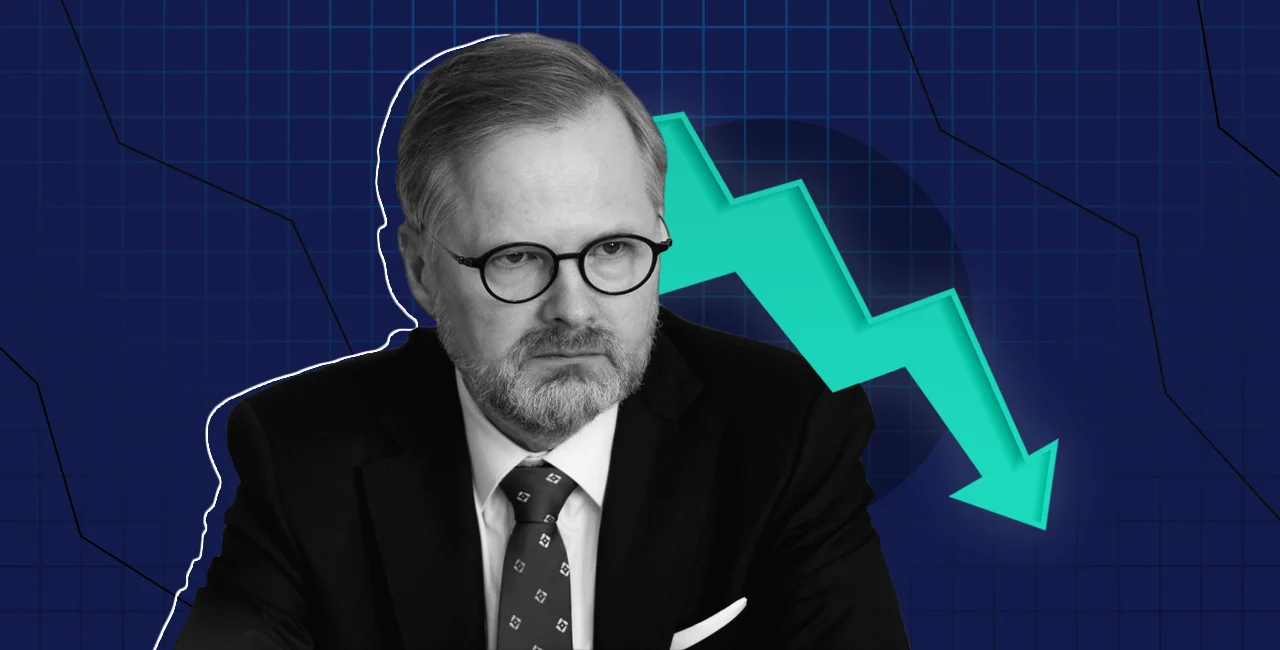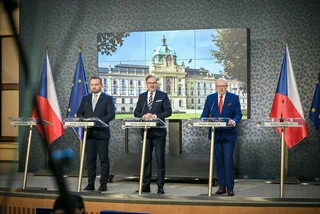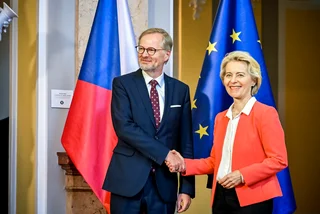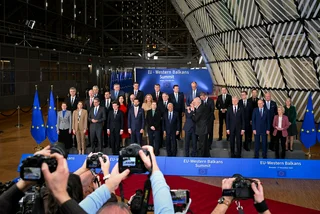Public discontent with the political situation in the Czech Republic is surging, with recent polls showing that satisfaction with the domestic political situation has fallen to its lowest level since the early days of the Covid-19 pandemic.
A survey by Kantar for Czech Television finds that just 16 percent of people are pleased with the state of politics in the country, which is currently run by the Spolu coalition (consisting of the Civic Democrats, Christian Democrats, TOP 09), the Pirates party, and Mayors and Independents.
Meanwhile, a Kantar election model produced by the same agency showed support for the governing coalition collapsing, with the opposition ANO movement now taking a massive lead over all other parties, securing one-third of the popular vote as against 12.5 percent for the Civic Democrats, led by Prime Minister Petr Fiala.
The discontent stems from a mix of action and inaction from the government, with people blaming the state for mismanaging various important matters – from the economy to public policy.
What is behind the drop at the polls?
Kantar analysts say that Czechs are primarily unhappy about the state’s response to inflation and the surging cost of living, regulation of energy prices, its controversial austerity package, and communication with the public.
Double-digit inflation seen during the majority of this year has lessened people’s average disposable income and made wages fall in real terms, despite nominal growth. Many are pointing fingers at the government, blaming it for how bad the situation has become.
What is the government doing wrong?
In the face of surging consumer prices, many people blame the government for not doing enough to protect Czechs against this. For example, the public accuses the government in 2022 of being slow to cap energy bills in comparison to other European countries, leading to people in Czechia paying much more for their utilities than they should have.
Similarly, the government’s decision to retain value-added tax (VAT) on grocery items meant that food prices continued to surge – unlike in Poland, where the government’s decisions to temporarily scrap VAT for supermarket items helped keep prices much lower.
Experts also say that much of the discontent comes from the government’s excessive spending, which has precipitated an upcoming period of austerity next year. In the government's hotly contested consolidation package, VAT for several products and services will jump, and income tax will – broadly – increase for the majority of the public. The self-employed will also be hurt, as their monthly financial insurance contributions will rise, and pensioners (and those soon to be retired) will see substantially lower pension increases than originally anticipated.
There have also been personnel problems, with some ministers lacking charisma or mishandling their portfolios. Communication of policies to the public has been poor and inconsistent, and several U-turns – such as changing the rules for doctors’ overtime work – have made the government seem indecisive and uncertain.
Public image gaffes, such as Fiala’s publication of a video showing how much cheaper goods were in Germany compared to Czechia (for which he later apologized), have not helped the situation at all.
What is the government doing right?
The government has succeeded in foreign policy, restoring the Czech Republic's standing in Europe and being a vocal and persistent supporter of Ukraine, issuing around half a million temporary protection visas to refugees and donating billions in foreign aid. It has also increased defense spending to meet the NATO-set target. Domestically, it is making progress on energy infrastructure projects to boost the security of supply.
Its presidency of the Council of the EU in the second half of last year was also widely praised for its competence and leadership. Commentators say that the country has also worked hard to boost cooperation with African countries, and its dialogue with leaders from Taiwan and – more recently – strong backing of Israel has cemented Czechia’s very pro-Western course.
It has also taken steps to improve the state of its environment. Earlier this year, Czechia took additional steps to expand its commitments to the EU-wide Green Deal. These include plans for the construction of social housing, the modernization and digitization of energy distribution systems, a focus on reinforcing cybersecurity in public services, and participation in the REPowerEU project – an initiative aimed at reducing reliance on Russian fossil fuels.
What do the experts say?
Experts say the government needs to revitalize by bringing in new faces that can better communicate their messages. While holding the coalition together during a difficult political climate is an achievement in itself, the government needs to win over more voters by the next elections to have a chance of remaining in power longer term.
With the next parliamentary election set to take place in September 2025, the government has less than two years to markedly improve the economic situation and relieve cost-of-living pressures to regain public trust.
expert comment
- Petr Honzejk, journalist at Hospodářské noviny, says that the government has "failed to fulfill the basic election promise that taxes will not be increased.”
- Magdalena Dušková, editor of Alarm, comments: “The vision for an ideal Czech Republic, as presented by Fiala, requires increased funding rather than budget cuts. Quality education, healthcare, and social systems cannot rely solely on creative accounting; boosting budget revenues is essential for their improvement.”
- Zuzana Kubátová, chief reporter of Seznam Zprávy Business, writes: "The pace of positive change is desperately slow. So slow that it has roused business representatives to enter politics themselves and begin to describe and advance their clearly political demands...business has run out of patience with the government."
- Kateřina Perknerová, editor at Deník.cz, says: "The government claims that it is doing everything great and in the name of future generations, but they can't explain it in any way...in the field of communication, the government is failing completely."
- Viliam Buchert, editor-in-chief of Reflex.cz, thinks: “The government should be more forceful, far-sighted, and convincing in its actions. The consolidation package was necessary, but did not go far enough. Prime Minister Petr Fiala should also replace some ministers if he wants to retain power.”












 Reading time: 5 minutes
Reading time: 5 minutes 



























